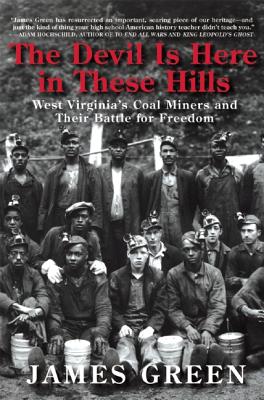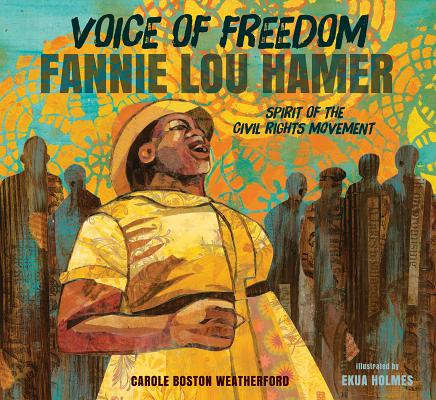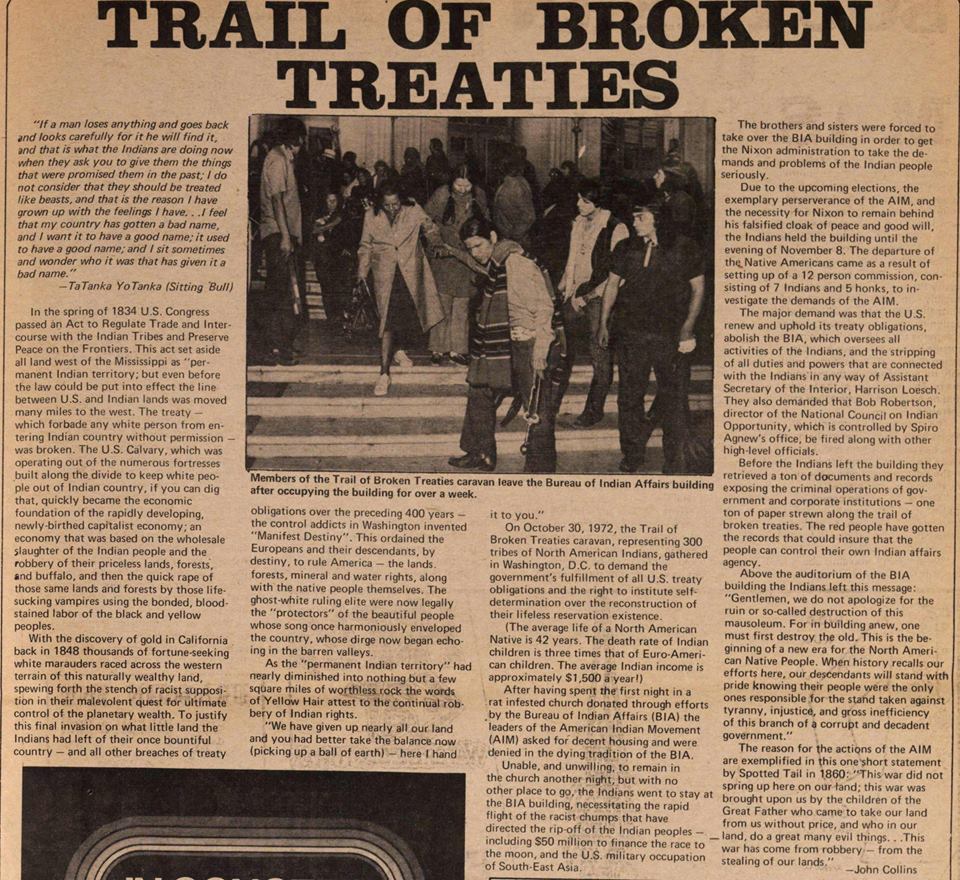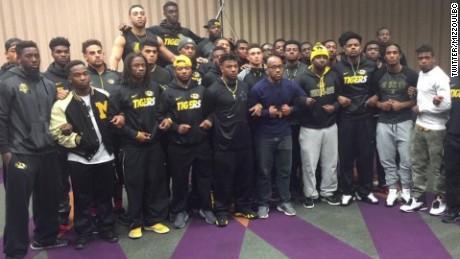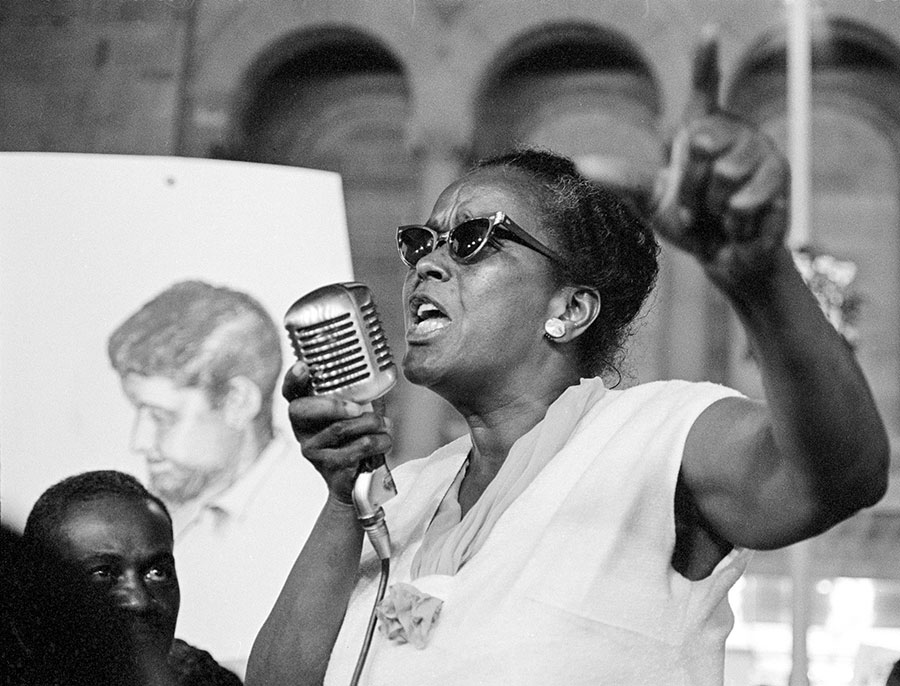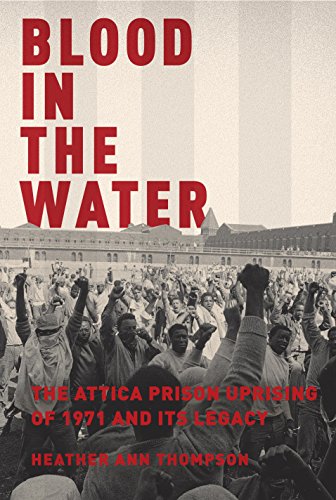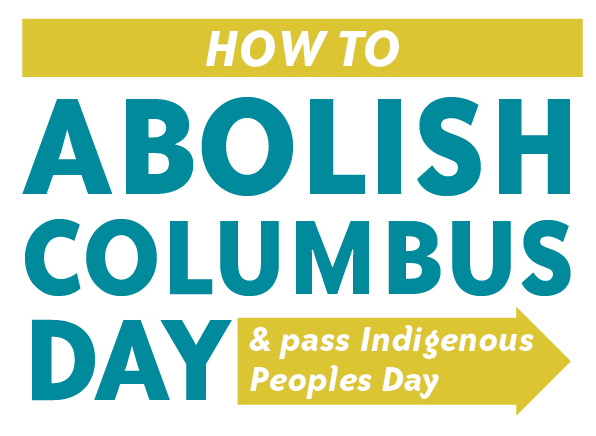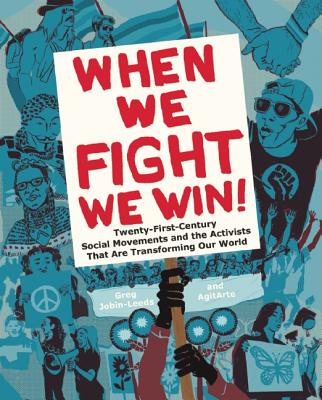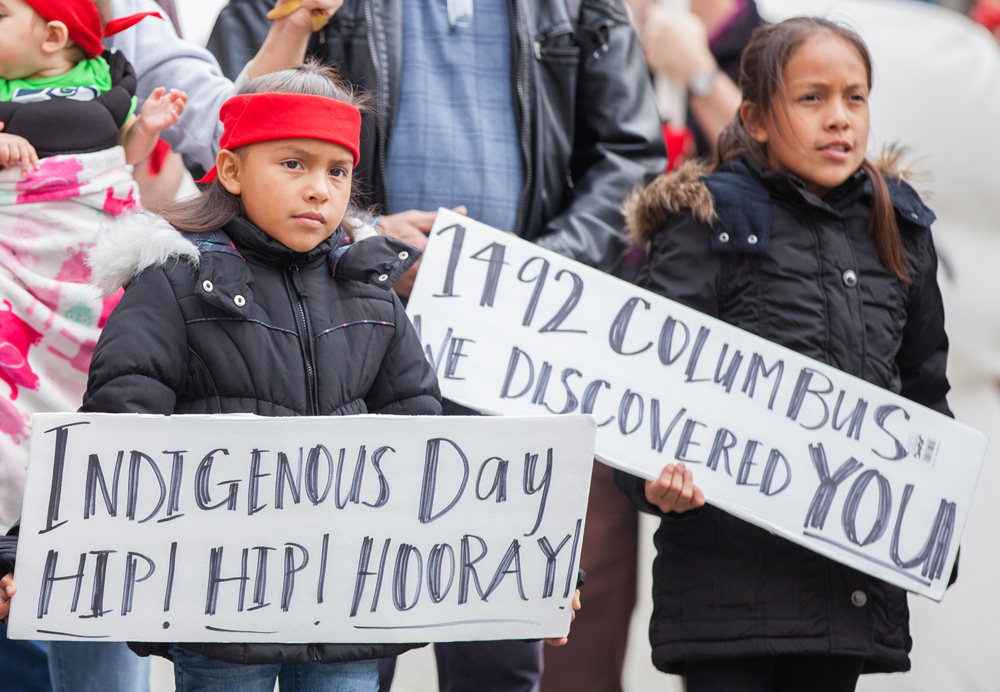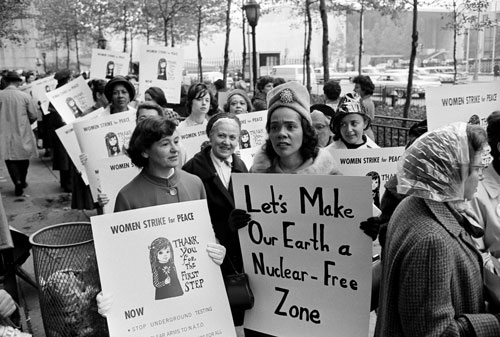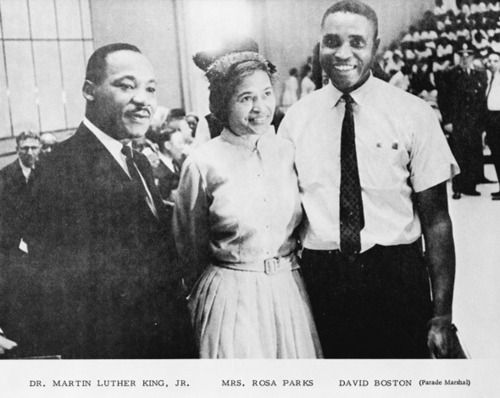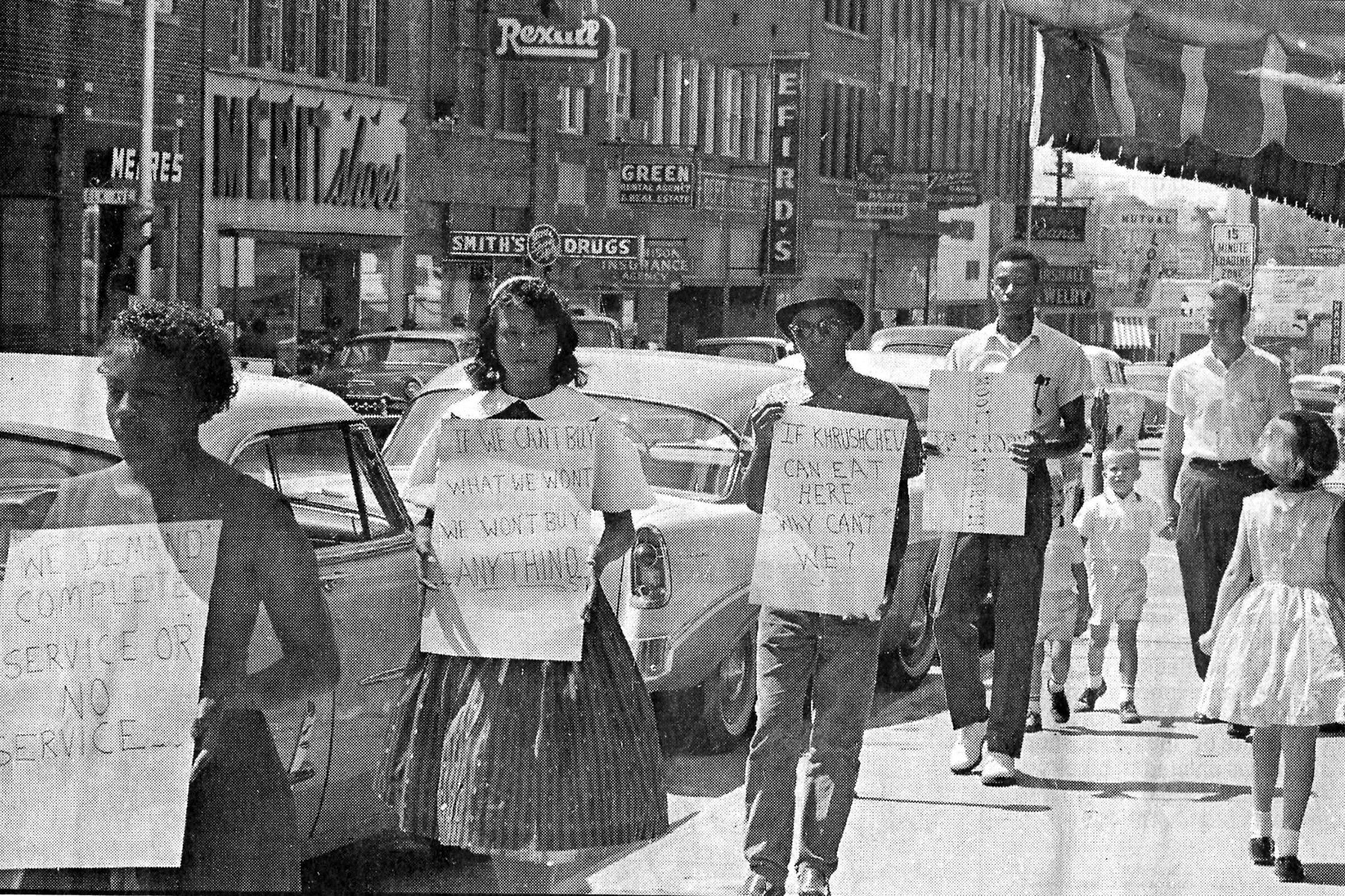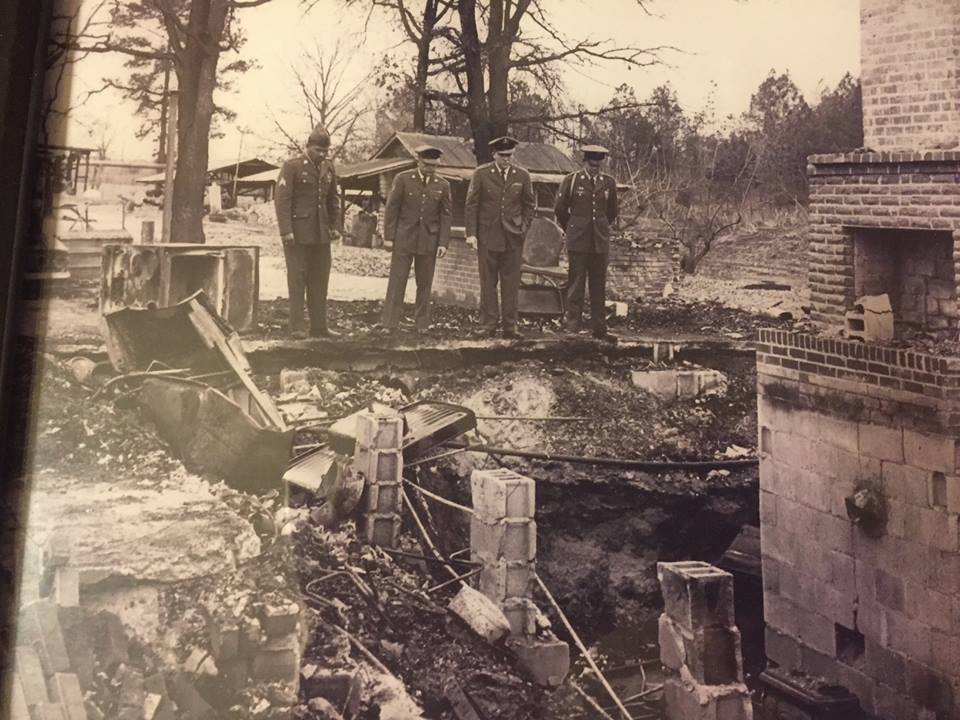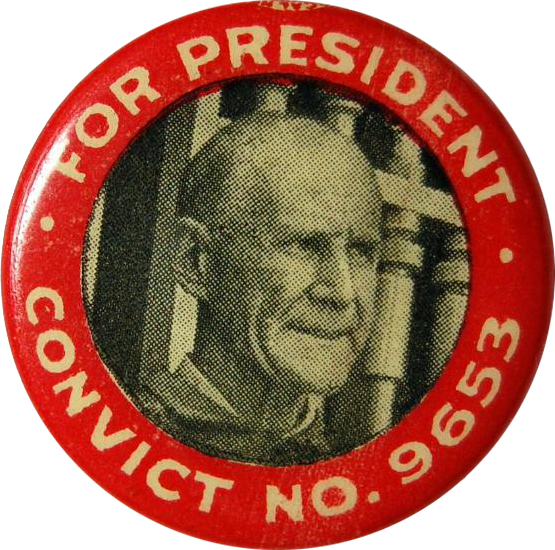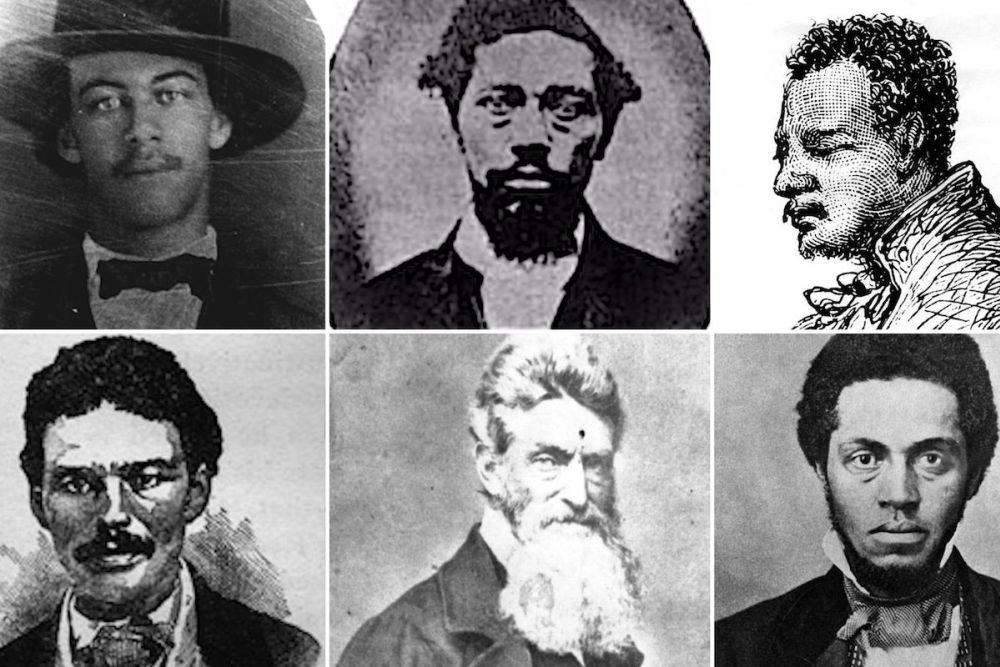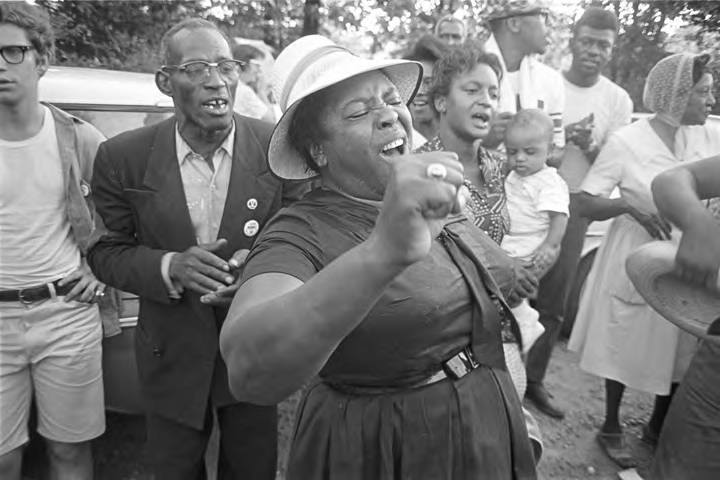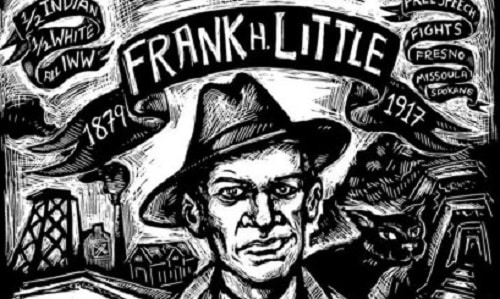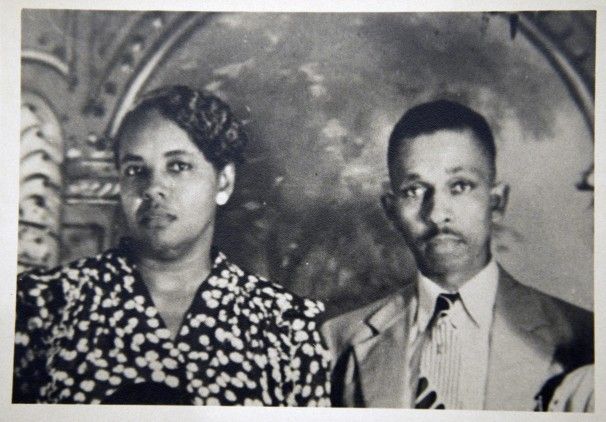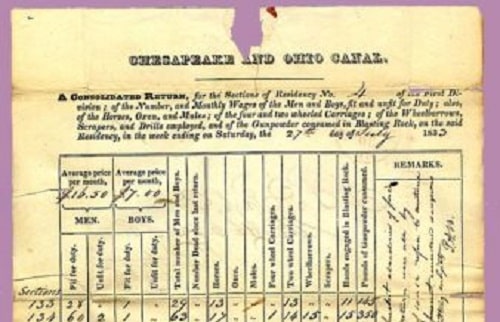Book — Non-fiction. By Winifred Conkling. 2015. 176 pages.
Young adult biography about Emily Edmonson who was one of 77 who attempted to escape slavery in Washington, D.C.
Continue reading
Article. By Emilye Crosby and Judy Richardson. 2015.
Key points in the history of the 1965 Voting Rights Act missing from most textbooks.
Continue reading
Digital Collection. Produced by John T. Edge and the Southern Foodways Alliance; directed by Kate Medley.
Five short films that document the civil disobedience staged at segregated lunch counters in the 1950s and 60s.
Continue reading
Book — Non-fiction. By James Green. 2015. 448 pages.
History of one of the most protracted and deadly labor struggles in U.S. history that was waged in West Virginia.
Continue reading
Picture book. By Carole Boston Weatherford. Illustrated by Ekua Holmes. 2015. 45 pages.
Illustrated biography of Fannie Lou Hamer, activist for voting and economic rights from Mississippi.
Continue reading
Protesters from the Trail of Broken Treaties Caravan occupied the Bureau of Indian Affairs (BIA) offices in Washington, D.C. for six days.
Continue reading
Article. By Dave Zirin. 2015.
The protest by the University of Missouri football team placed in the context of a long history of activism by college athletes.
Continue reading
Born on this day, Ella Baker was a civil rights and human rights activist beginning in the 1930s whose career spanned more than five decades.
Continue reading
Book — Non-fiction. By Heather Ann Thompson. 2016. 752 pages.
The hidden history of the infamous 1971 Attica Prison Uprising.
Continue reading
Article. By Mahtowin Munro.
Campaign guidelines from the organizer of a successful effort to abolish Columbus Day and establish Indigenous Peoples' Day in Cambridge, Mass.
Continue reading
Book — Non-fiction. By Greg Jobin Leeds, Dey Hernandez Vazquez, and AgitArte. 2016. 208 pages.
A visually rich and inspiring book of 21st century leaders and activists distill their wisdom, sharing lessons of what makes and what hinders transformative social change.
Continue reading
Teaching Activity. By Ursula Wolfe-Rocca, Bill Bigelow, and Andrew Duden. Article by Ursula Wolfe-Rocca. Rethinking Schools. 15 pages.
A role play helps students recognize the issues at stake in the historic struggle of the Standing Rock Sioux to block construction of the Dakota Access oil pipeline.
Continue reading
Book — Non-fiction. By Kate Schatz. Illustrated by Miriam Klein Stahl. 2016. 112 pages.
Profiles of women who fight for social justice around the world.
Continue reading
Dr. Martin Luther King Jr. gave the speech titled “The Other America” focusing on economic inequalities and white complicity in the North.
Continue reading
The Student Nonviolent Coordinating Committee (SNCC) sent four volunteers to Rock Hill, South Carolina to sit-in.
Continue reading
Vernon Dahmer was killed when the Ku Klux Klan fired bombed his home. This was one day after Dahmer offered to pay the election poll tax for anyone who could not afford it.
Continue reading
Eugene V. Debs received one million votes in the U.S. presidential election while in prison on the Socialist Party ticket.
Continue reading
An abolitionist raid against a federal armory in Harpers Ferry, West Virginia in an attempt to start an armed revolt against the institution of slavery.
Continue reading
Mrs. Fannie Lou Hamer, a civil rights activist, was born in Montgomery County, Mississippi.
Continue reading
IWW labor organizer Frank Little was lynched from a railroad trestle.
Continue reading
The Ku Klux Klan bombed the home of labor and voting rights activists Harry T. Moore and Harriette Moore — killing them both. Harriette Moore taught elementary school, secretly teaching her students Black history in the face of bans by the state superintendent.
Continue reading
Student demonstrators and other civilians were killed by the military and police in Mexico in advance of the 1968 Olympic Games.
Continue reading
President Andrew Jackson used federal troops to suppress worker organizing.
Continue reading




